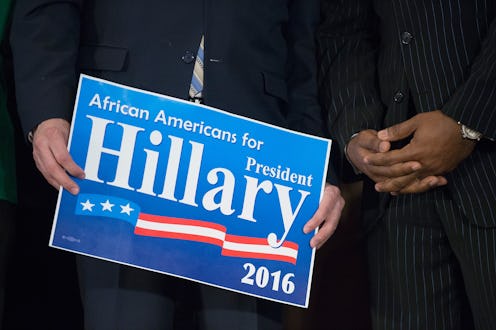News
Clinton's Wisconsin Loss Wasn't About White Men
Like many of you, I was surprised (to put it mildly) when Hillary Clinton lost the presidential election, and like many of you, I've been doing my share of Monday-morning quarterbacking in an attempt to figure out how the biggest electoral upset in memory took place. How did Hillary Clinton lose Wisconsin, for example — a state that hasn't voted to elect a Republican president in three decades? The most common answer seems to be that Democrats underestimated the economic anxiety of white men in the Rust Belt, who — the story goes — flocked from Barack Obama to Donald Trump in droves.
The prescribed response for the Democratic Party is a renewed focus on making an economic pitch to white male voters, but I believe that solution misses a major component of the problem.
For starters, the 2016 election is not a story of a changing political majority. By the latest tally from the nonpartisan Cook Political Report, Clinton won the popular vote by over two million votes. It's reductive and useless to analyze the election as if Trump won in a mandate-sized landslide when he didn't even win a plurality of votes.
No, an essential component to the story of 2016 is about whether people who lived in key states made it to the polls, and no proper solution for the Democrats' Electoral College loss can omit that problem. Ultimately, I believe that voter ID laws unfairly suppressed black turnout and badly damaged Clinton's chances in Wisconsin.
The Voting Rights Act (VRA) was passed in the 1960s in response to voter suppression efforts aimed at black Americans. In 2013, the Supreme Court ruled that Section 4 of the VRA was unconstitutional, thus eliminating some significant federal oversight to individual states' voting processes. As Ari Berman of The New York Times described, the period between that decision and the presidential election saw a flood of new voting requirements in 14 states, which Berman claimed "depressed turnout in key states like Wisconsin, particularly among black voters."
In October 2014, a nonpartisan congressional study determined that voter ID laws significantly and disproportionately affected black voters. University of California San Diego political scientist Zoltan Hajnal also studied these effects and echoed those findings in a recent Los Angeles Times op-ed:
The patterns are stark. Where strict identification laws are instituted, racial and ethnic minority turnout significantly declines.
Hajnal's research found a "differentially negative impact on the turnout of Hispanic, black, and mixed-race Americans in primaries and general elections."
For this reason, voter ID laws have been struck down by various U.S. courts throughout the past several years. Wisconsin's own ID law was rejected by a U.S. district judge, who condemned the disparate impact of such a law in his written opinion:
The Wisconsin experience demonstrates that a preoccupation with mostly phantom election fraud leads to real incidents of disenfranchisement, which undermine rather than enhance confidence in elections, particularly in minority communities. To put it bluntly, Wisconsin's strict version of voter ID law is a cure worse than the disease.
Despite this strongly worded opposition, an appeals court reinstated the law shortly before the election. Come Nov. 8, turnout in the Badger State fell to a 20-year low, according to the Associated Press. One of the biggest turnout plunges was in Milwaukee's 15th district, which is 84 percent black. University of Wisconsin-Madison professor Barry Burden told Madison.com that preliminary exit polls indicated a substantial drop in black and young voter turnout. “Younger people, African-Americans and Latinos are less likely to have the IDs they need. So if turnout among those groups falls in this election from previous years, that’s circumstantial evidence that it deterred them from trying to vote at all," Burden said,
It's difficult to prove causation, of course. Perhaps black voters simply didn't support Clinton — though Pew Research indicates that black Americans who did vote preferred Clinton by an 80-point margin.
Clinton only lost the Badger State by about 27,000 votes. I wonder if Wisconsin had less restrictive voter ID laws, we'd be telling a very different story about this election.
